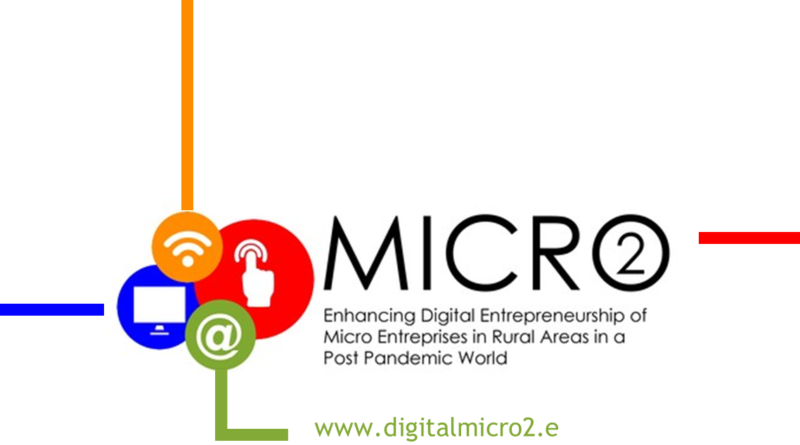MICRO 2 Digital Project Unveils an Innovative Digital Competence Analysis Model for Rural Microenterprises in a Post-Pandemic Era
The MICRO 2 Digital project is proud to announce the successful development of the WP2 MICRO 2 Digital Model, a ground-breaking solution focused on analysing and assessing the most sought-after digital competences for microenterprises in rural areas in a post-pandemic era.
The MICRO 2 Digital project, co-funded by the Erasmus+ Programme of the EU Commission, aims to advance digital competences and skills of microenterprises in rural areas as an engine for growth, employment and social empowerment. The partnership includes four organisations from four European countries (Ireland, Belgium, Italy and Spain). Through meticulous research and analysis, during the activities for WP2, the team has mapped the post-pandemic trends and digital skill gaps within rural microenterprises. This comprehensive understanding will allow partners to develop innovative training courses tailored to the identified training needs.
Central to the development of the WP2 MICRO 2 Digital Model was the benchmarking process with established EU frameworks, specifically with DigComp 2.2 and EntreComp. By leveraging these existing frameworks, the project team ensured that the digital competences selected in the model align with European standards, fostering cohesion and compatibility across borders.
One of the key deliverables of the WP2 and the project is the creation of the Digital Microenterprises Matrix. This matrix provides a systematic overview of the essential digital competences required for microenterprises in rural areas. By offering a structured approach, the Digital Microenterprises Matrix enables microenterprises to identify and prioritise the areas where they need to build their digital capabilities. There areas will be addressed by the MICRO 2 Digital Training Courses – during the development of the Work Package 3 (WP3) of the project.
The basis of this Matrix was the development of three country-specific reports (for Ireland, Italy and Spain) and of a pan-EU snapshot, providing valuable insights into the digital landscape of microenterprises in different countries and regions. These four reports serve as essential resources for policymakers, industry stakeholders, and microenterprises themselves, fostering informed decision-making and strategic planning.
In addition to these deliverables, the following were developed within the MICRO 2 Digital Model:
- A Composite Report combining the four specific reports into a single document
- An Executive Summary in multilanguage version (English, Italian and Spanish) summarising the main results of all reports and the entire Digital Model
- A Common Knowledge Bank which constitutes the sources on which the research and analysis were based, representing the union of the literature reviews (bibliography + sitography) of each report
- 16 including Case Studies and Good Practices in multilanguage version (English, Italian and Spanish) to provide practical examples of digital entrepreneurship of microenterprises in a post pandemic world
For more information on WP2 deliverables, visit the direct link: www.digitalmicro2.eu/digitalmodel
In addition, the deliverables themselves will soon be accessible in a smart and fast manner with the help of a chat assistant – the Chatbot – that the partnership is integrating into the project platform.
For any further information on MICRO 2 Digital project: www.digitalmicro2.eu


